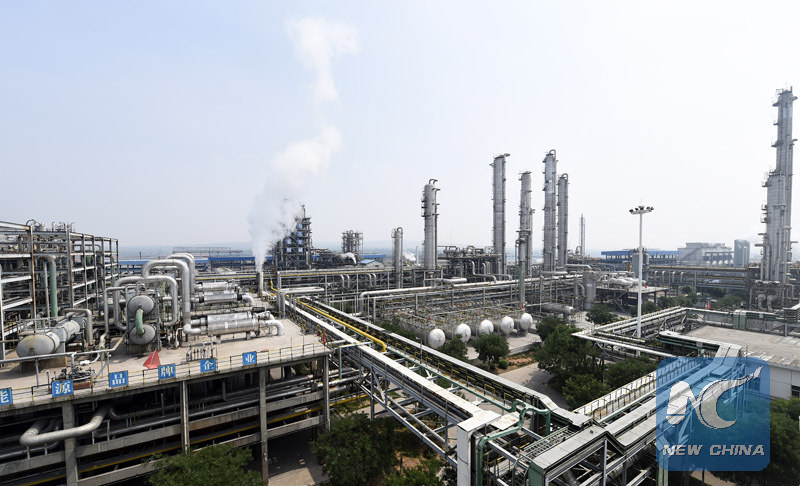NEW YORK, May 29 (Xinhua) -- A U.S. expert lauded China's efforts to advance the supply-side structural reform and said it is right on target as the country's economy is now settling into a "new normal" of lower growth rates.

Photo shows a factory in north China's Shanxi Province. (Xinhua/Yan Yan) (File photo)
"China is producing a lot, but its people are not buying it. The mismatch of supply and demand is a pain for the economy. However, the supply-side reform is here to solve this problem," said Zhao Yao, professor and co-director of the Supply Chain Analytics Laboratory at the Business School of Rutgers University.
Structural reform on the supply front requires industries to change focus from blind expansion to the actual demands of customers through offering innovative products, analysts say.
"Supply-side reform is mainly two things, one is to improve the Chinese companies' productivity and the other is to win the competition in a global market," said Zhao at a Chinese executive training program held at Rutgers Business School on Tuesday.
China's economy has maintained high growth since its reform and opening-up. However, the country only garnered a 6.9 percent growth rate in 2015.
Zhao pointed out that as the country's economy enters a new normal, it needs to shift its focus from scale and speed toward quality and efficiency, which is just what the supply-side reform is calling for.
At a key economic meeting held at the end of 2015, China's policy makers pledged to take steps to push forward the supply-side structural reform in 2016 and beyond, supporting growth through new demand and productivity.
It is seen as an innovative move to guide the world's second largest economy and a proactive decision to make it more competitive internationally.
To push forward the reform, China needs to build a unified market to reduce marketing expense for companies, said Zhao.
The country has to invest in a fast and efficient transportation network to reduce logistic cost for companies and to encourage fine competition and innovation, especially for the small and medium-sized companies, he added.
Meanwhile, a continued effort to fight corruption is also important as this can help companies reduce the hidden cost.
"With all this done, I am sure China's companies will take more than half the space in the Fortune 500," said Zhao.















